Flowers and seeds -> chronology
Chronology
Chronology is the arrangement of events or dates in the order of their occurrence. It is an essential concept in understanding the progression of historical events and scientific discoveries.
Key Concepts
- Time Periods: Chronology helps us understand the sequence of time periods and their significance in history and science.
- Dating Methods: Various dating methods such as carbon dating, tree-ring dating, and stratigraphy are used to determine the chronology of events and artifacts.
- Historical Events: Chronology is crucial in studying and understanding the timeline of historical events, including wars, revolutions, and cultural developments.
- Scientific Discoveries: In the field of science, chronology helps us trace the timeline of important discoveries and advancements in various branches of science.
Study Guide
To understand chronology better, consider the following study guide:
- Research and understand different dating methods used in establishing chronology.
- Study key historical events and their chronological order, focusing on their significance and impact.
- Explore the chronology of scientific discoveries in areas such as physics, chemistry, biology, and astronomy.
- Practice creating timelines of historical periods or scientific advancements to reinforce understanding of chronology.
- Discuss the importance of chronology in understanding the progression of human civilization and scientific knowledge.
By mastering the concept of chronology, you will gain a deeper understanding of the interconnectedness of historical events and scientific breakthroughs across different time periods.
[Chronology] Related Worksheets and Study Guides:
.◂Science Worksheets and Study Guides Fifth Grade. Flowers and seeds
Study Guide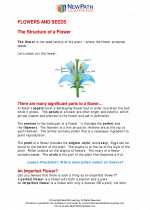 Flowers and seeds
Flowers and seeds  Activity Lesson
Activity Lesson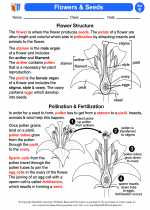 Flowers & Seeds
Flowers & Seeds  Worksheet/Answer key
Worksheet/Answer key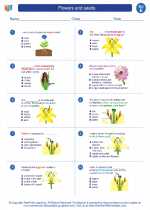 Flowers and seeds
Flowers and seeds  Worksheet/Answer key
Worksheet/Answer key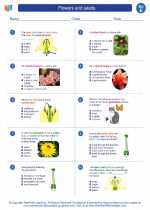 Flowers and seeds
Flowers and seeds  Worksheet/Answer key
Worksheet/Answer key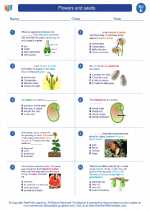 Flowers and seeds
Flowers and seeds  Worksheet/Answer key
Worksheet/Answer key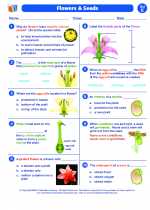 Flowers and seeds
Flowers and seeds  Vocabulary/Answer key
Vocabulary/Answer key Flowers and seeds
Flowers and seeds  Vocabulary/Answer key
Vocabulary/Answer key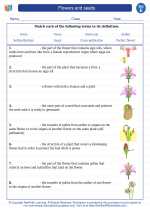 Flowers and seeds
Flowers and seeds 

 Activity Lesson
Activity Lesson
 Worksheet/Answer key
Worksheet/Answer key
 Worksheet/Answer key
Worksheet/Answer key
 Worksheet/Answer key
Worksheet/Answer key
 Worksheet/Answer key
Worksheet/Answer key
 Vocabulary/Answer key
Vocabulary/Answer key
 Vocabulary/Answer key
Vocabulary/Answer key

The resources above cover the following skills:
Life Science
All organisms have structures and systems with separate functions. Students can:
Develop and communicate an evidence-based scientific explanation of the role of different organs or structures that are important for an organism's survival - in both plants and animals